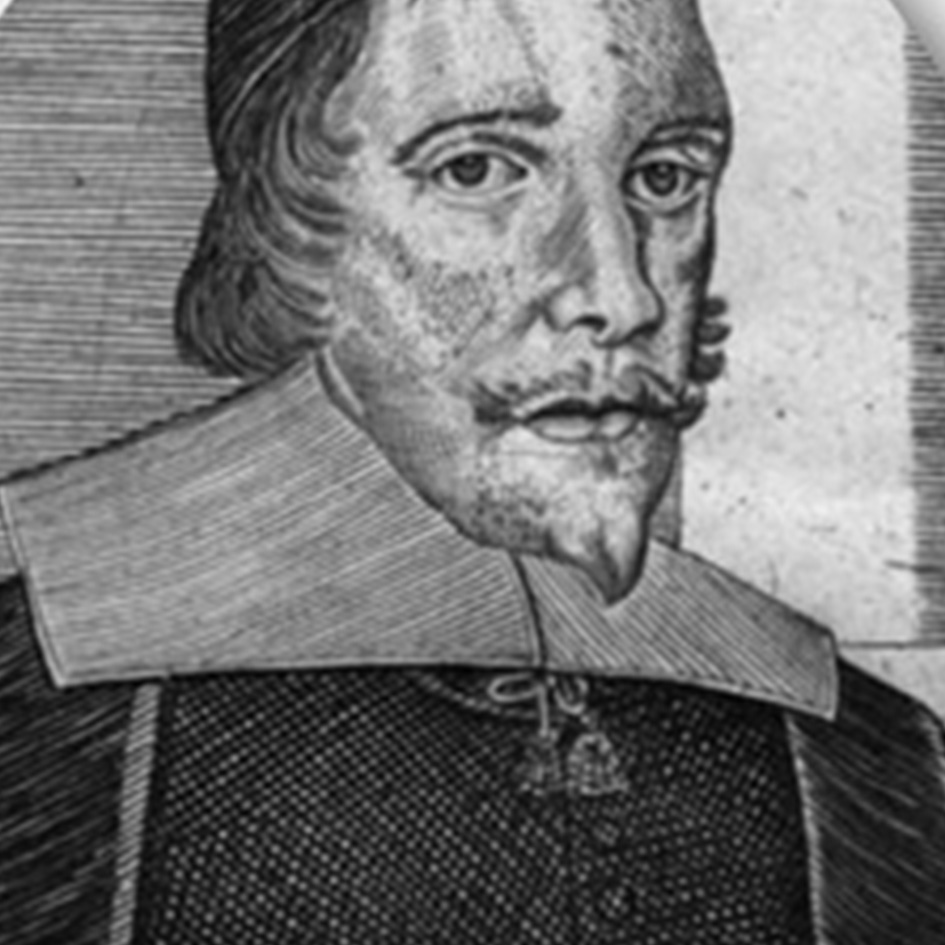
Jeremiah Burroughs (or Burroughes) was baptized in 1601 and admitted as a pensioner at Emmanuel College, Cambridge, in 1617. He graduated with a Bachelor of Arts degree in 1621 and a Master of Arts degree in 1624. His tutor was Thomas Hooker.
Burroughs’s ministry falls into four periods, all of which reveal him as a zealous and faithful pastor. First, from about 1627 until 1631, he was assistant to Edmund Calamy at Bury St. Edmunds, Suffolk. Both men became members of the Westminster Assembly. Both men strongly opposed King James’s Book of Sports. Both refused to read the king’s proclamation in church that dancing, archery, vaulting, and other games were lawful recreations on the Lord’s Day.
Second, from 1631 to 1636, Burroughs was rector of Tivetshall, Norfolk, a church that still stands today. Despite the best efforts of his patron, Burroughs was suspended in 1636 and deprived in 1637 for refusing to obey the injunctions of Bishop Matthew Wren, especially regarding the reading of the Book of Sports, and the requirements to bow at the name of Jesus and to read prayers rather than speak them extemporaneously.
Third, from 1638 to 1640, Burroughs lived in the Netherlands, where he was teacher of a congregation of English Independents at Rotterdam, formerly ministered by William Ames. William Bridge was the pastor and Sidrach Simpson had established a second like-minded church in the city. Thus, three future dissenting brethren were brought together, all of whom would serve as propagandists for congregationalism later in the 1640s.
In the final period from 1640 to his death in 1646, Burroughs achieved great recognition as a popular preacher and a leading Puritan in London. He returned to England during the Commonwealth period and became pastor of two of the largest congregations in London: Stepney and St. Giles, Cripplegate. At Stepney, he preached early in the morning and became known as “the morning star of Stepney.” He was invited to preach before the House of Commons and the House of Lords several times. Thomas Brooks called him “a prince of preachers.”
As a member of the Westminster Assembly, Burroughs sided with the Independents, but he remained moderate in tone, acting in accord with the motto on his study door: Opinionum varietas et opinantium unitas non sunt hasustata (“variety of opinion and unity of opinion are not incompatible”). Richard Baxter said, “If all the Episcopalians had been like Archbishop Ussher, all the Presbyterians like Stephen Marshall, and all the Independents like Jeremiah Burroughs, the breaches of the church would soon have been healed.”
In 1644, Burroughs and several colleagues presented to Parliament their Apologetical Narration, which defended Independency. It attempted to steer a middle course between Presbyterianism, which they regarded as too authoritarian, and Brownism, which they regarded as too democratic. This led to division between the Presbyterians and Independents. Burroughs served on the committee of accommodation, which tried to reconcile the differences, but on March 9, 1646, he declared on behalf of the Independents that presbyteries were “coercive institutions.” Burroughs said he would rather suffer or emigrate than submit to presbyteries. Ultimately, the division between Presbyterians and Independents helped promote the cause of prelacy after the death of Oliver Cromwell.
Burroughs pursued peace to the end. He died in 1646, two weeks after a fall from his horse. The last subject on which he preached became his Irenicum to the Lovers of Truth and Peace, an attempt to heal divisions between believers. Many of his friends believed that church troubles hastened his death.
Burroughs was a prolific writer, highly esteemed by Puritan leaders of his day, some of whom published his writings after his death. Nearly all of his books are compilations of sermons.
Excerpt from
Meet the Puritans: With a Guide to Modern Reprints
Joel R. Beeke and Randall J. Pederson








